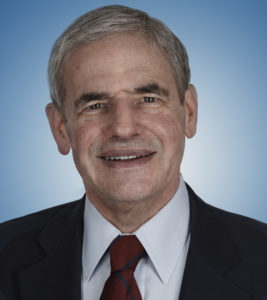Economist Robert Higgs of The Independent Institute has observed that governments use fear to manipulate public opinion, in order to gain acceptance of their various pursuits. He notes that the media usually support this endeavor.
The turmoil in the Middle East and North Africa has led to an increase in the price of oil. Predictably, politicians and the media encourage fear of rising oil prices to justify military intervention, as well as subsidizing “alternative” (meaning uneconomical) energy to establish “energy independence.”
The Market Has the Solution
The truth is that, as with any commodity, the market solves the matter of oil prices as long as the government does not interfere. Consider this assessment by Jason Zweig of the Wall Street Journal:
“Adjusted for inflation, the price of oil today is just 4% higher than it was at its last peak in January 1981 … There were many sickening bumps throughout the intervening 30 years, but in the end the average annual gain, adjusted for inflation, was roughly 0.014 % … Even from early 1973, before oil prices tripled, the long-run real return is less than … That is less than the return on cash after inflation.
When prices have spiked, it has usually been because of supply fears—as in Iraq and Iran during their war in 1980-81, Kuwait in 1990 and Venezuela and Iraq in 2003. But supply shortages tend to be solved quickly. Over time, rising prices have consistently brought on rising production, which has tended to lead to falling prices.”
Even Fed Chairman Ben Bernanke has recognized that prior recessions that followed “oil shocks” were really caused by the Fed’s having reacted by raising interest rates. As summarized by Gregory White of Business Insider:
“Bernanke and his co-authors … discover, utilizing a model that removes either the rate hike or the oil spike from the equation, that, when left alone, the economy actually performs better. Prices go up, yes, but so does output, and things stabilize a bit within 10 months.
On the other hand, a rate hike ends up causing problems for years, reducing output.”
As to the fear that changes in the regimes of foreign countries jeopardize “oil security,” this is mythical. See our discussion in “Oil Spill Spillover: The Fallacy of Energy Independence.”
The U.S. government could help only by ending its interference in the energy market. It should stop obstructing energy exploration and development, and privatize the lands and waters that hold energy resources. It should also end the subsidy of “green energy” and nuclear power.
Conclusion
Fear not oil prices. Do not indulge the efforts of government and the media to manipulate public opinion.
References:
Higgs, Robert, “Fear: The Foundation of Every Government’s Power,” The Independent Institute, May 17, 2005, http://www.independent.org/publications/article.asp?id=1510.
Shellenberger, David E., Oil Spill Spillover: The Fallacy of Energy Independence,” June 3, 2010, https://www.daveshellenberger.com/oil-spill-spillover-fallacy-energy-independence.
White, Gregory, “Here’s That Ben Bernanke Paper On Oil Shocks And Policy Blunders That Everyone Is Talking About,” Business Insider, March 7, 2011, http://www.businessinsider.com/ben-bernanke-systematic-monetary-policy-and-the-effects-of-oil-price-shocks-2011-3?op=1#ixzz1FxDiDuGz.
Zweig, Jason, “That’s Oil, Folks: Why You Don’t Need More in Your Portfolio,” Wall Street Journal, March 5, 2011, http://ur.ly/FObW.




